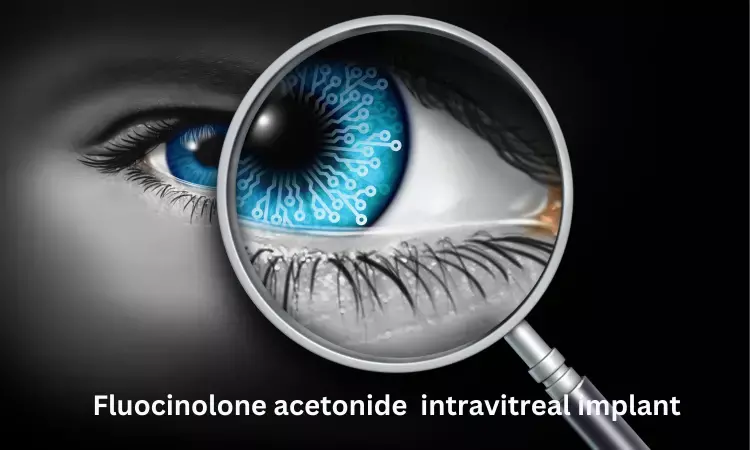- Home
- Medical news & Guidelines
- Anesthesiology
- Cardiology and CTVS
- Critical Care
- Dentistry
- Dermatology
- Diabetes and Endocrinology
- ENT
- Gastroenterology
- Medicine
- Nephrology
- Neurology
- Obstretics-Gynaecology
- Oncology
- Ophthalmology
- Orthopaedics
- Pediatrics-Neonatology
- Psychiatry
- Pulmonology
- Radiology
- Surgery
- Urology
- Laboratory Medicine
- Diet
- Nursing
- Paramedical
- Physiotherapy
- Health news
- Fact Check
- Bone Health Fact Check
- Brain Health Fact Check
- Cancer Related Fact Check
- Child Care Fact Check
- Dental and oral health fact check
- Diabetes and metabolic health fact check
- Diet and Nutrition Fact Check
- Eye and ENT Care Fact Check
- Fitness fact check
- Gut health fact check
- Heart health fact check
- Kidney health fact check
- Medical education fact check
- Men's health fact check
- Respiratory fact check
- Skin and hair care fact check
- Vaccine and Immunization fact check
- Women's health fact check
- AYUSH
- State News
- Andaman and Nicobar Islands
- Andhra Pradesh
- Arunachal Pradesh
- Assam
- Bihar
- Chandigarh
- Chattisgarh
- Dadra and Nagar Haveli
- Daman and Diu
- Delhi
- Goa
- Gujarat
- Haryana
- Himachal Pradesh
- Jammu & Kashmir
- Jharkhand
- Karnataka
- Kerala
- Ladakh
- Lakshadweep
- Madhya Pradesh
- Maharashtra
- Manipur
- Meghalaya
- Mizoram
- Nagaland
- Odisha
- Puducherry
- Punjab
- Rajasthan
- Sikkim
- Tamil Nadu
- Telangana
- Tripura
- Uttar Pradesh
- Uttrakhand
- West Bengal
- Medical Education
- Industry
Fluocinolone acetonide implants reliable option to treat non-infectious uveitis

Fluocinolone acetonide (FAc) intravitreal implant 0.19 mg (ILUVIEN®) is a nonbiodegradable, injectable, corticosteroid implant that is approved in several countries, including the USA, for the treatment of diabetic macular edema (DME). However still there is a risk of infection in most of the implants.
The team of researchers assessed the effectiveness of the 0.19-mg fluocinolone acetonide (FAc) implant by multimodal measurements in patients with non-infectious uveitis (NIU) in a real-world setting in Spain. The study published in journal International Opthalmology suggests that FAc implant is safe and a reliable option as chances of infection are less in non- infectious uveitis.
A prospective study of patients who had NIU including uveitic macular oedema (UME) with ≥ 12 months follow-up was done. Exclusion criteria include infectious uveitis and uncontrolled glaucoma or ocular hypertension requiring more than 2 medications. Effectiveness was assessed using a multicomponent outcome measure that included nine outcomes. Effectiveness was defined as all components being met at every timepoint. Secondary outcome measures were onset or progression of glaucoma and investigator-reported adverse events.
The key findings of the study are
• A total of twenty-six eyes from 22 patients were included, with 96.2% having an indication including UME. During the 12-month study, the FAc implant was effective in 15 (57.7%) eyes, reaching effectiveness as soon as 2 weeks post-implantation.
• Mean best-corrected visual acuity and mean central macular thickness (CMT) were significantly improved vs. baseline at all timepoints (all comparisons p < 0.01).
• During the 12-month study, inflammation markers (anterior chamber cells and vitreous haze) had also significantly declined.
• Factors predicting effectiveness at month 12 were systemic corticosteroid dose pre-FAc, higher immunomodulatory therapy (IMT) load at baseline and thicker retinal nerve fibre layer (RNFL) at baseline (all p < 0.05).
• Factors predicting failure were male gender, thinner RNFL at baseline and treatment ineffectiveness at 1 month (all p < 0.05). In parallel, corticosteroid and IMT use also declined significantly. No significant increase in IOP was detected.
Researchers concluded that “The FAc implant is safe and effective at treating NIU over 12 months in a real-world setting in Spain.
Reference: Moll-Udina A, Hernanz I, Sainz-de-la-Maza M, Pelegrín L, Coelho-Borges AI, Pazos M, Adán A, Llorenç V. Intravitreal fluocinolone acetonide 0.19 mg (ILUVIEN®) in patients with non-infectious uveitis: real-world effectiveness and safety outcomes at 12 months. Int Ophthalmol. 2023 Nov;43(11):4181-4195. doi: 10.1007/s10792-023-02828-6. Epub 2023 Sep 12.
MSc. Neuroscience
Niveditha Subramani a MSc. Neuroscience (Faculty of Medicine) graduate from University of Madras, Chennai. Ambitious in Neuro research having worked in motor diseases and neuron apoptosis is interested in more of new upcoming research and their advancement in field of medicine. She has an engrossed skill towards writing and her roles at Medical dialogue include Sr. Content writer. Her news covers new discoveries and updates in field of medicine. She can be reached at editorial@medicaldialogues.in
Dr Kamal Kant Kohli-MBBS, DTCD- a chest specialist with more than 30 years of practice and a flair for writing clinical articles, Dr Kamal Kant Kohli joined Medical Dialogues as a Chief Editor of Medical News. Besides writing articles, as an editor, he proofreads and verifies all the medical content published on Medical Dialogues including those coming from journals, studies,medical conferences,guidelines etc. Email: drkohli@medicaldialogues.in. Contact no. 011-43720751


